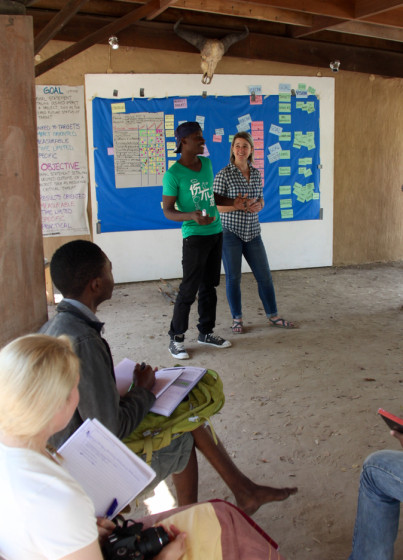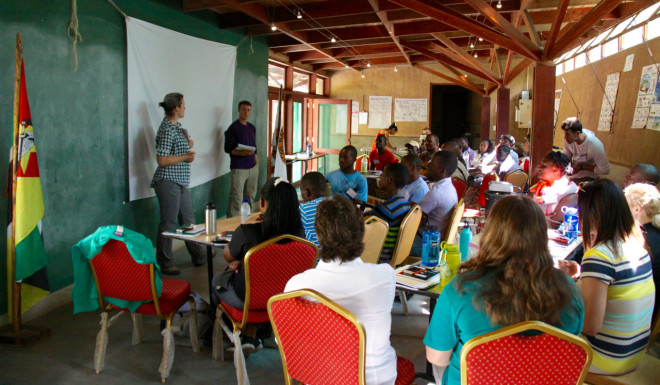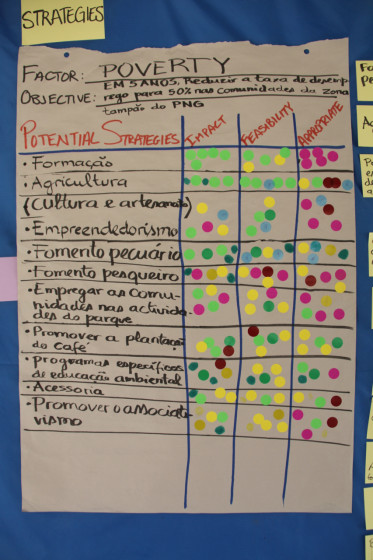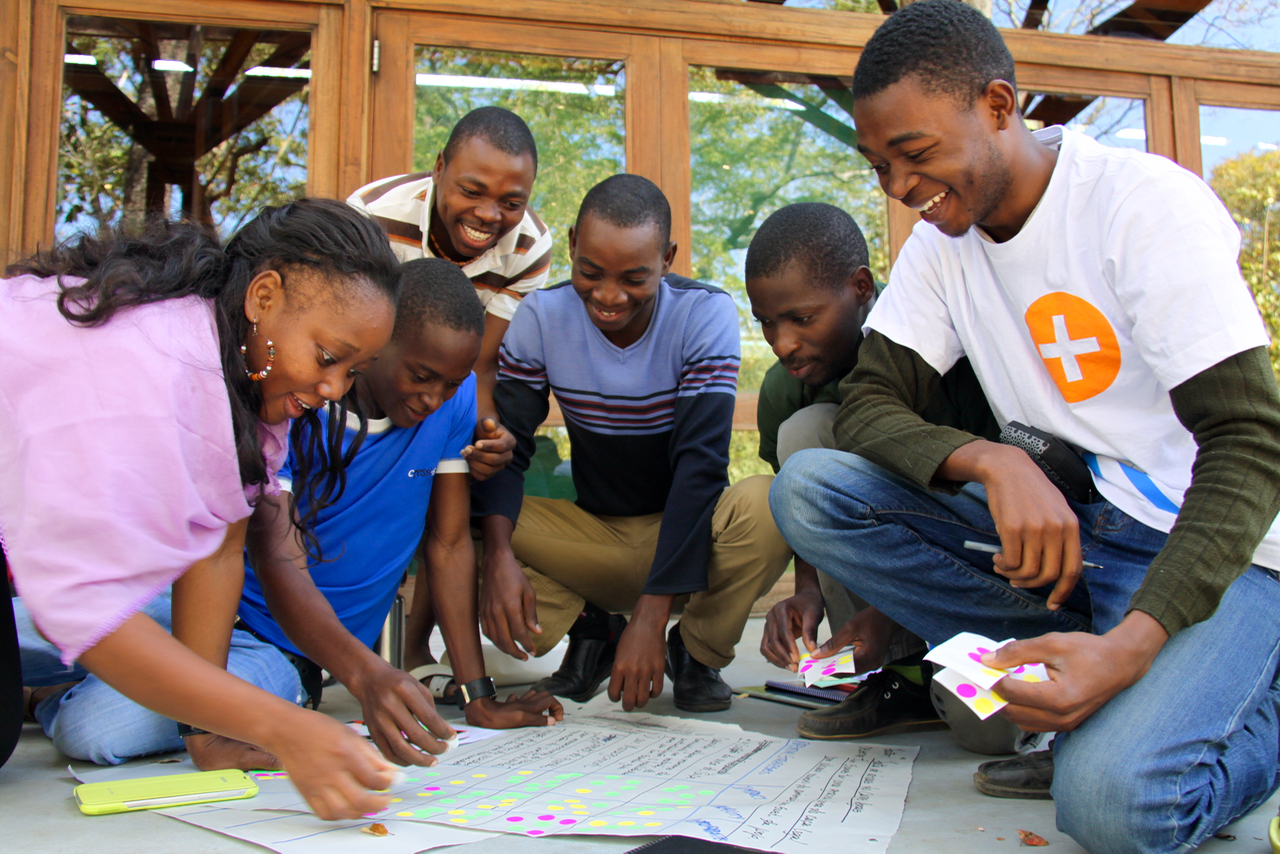The Lost Mountain is more than fortunate to have some of the world’s leading experts in the areas of biodiversity and conservation on our team. In this next post, Lost Mountain Faculty, Elizabeth O’Neill, writes about how conservation is a business that is often downright depressing and yet, here at The Lost Mountain Next Gen Symposium, her hope in the process and in the future has been restored.
Conservation is a difficult business. It can be hard on the soul. Especially within my area of specialization – evaluation of results and impacts of multi-million-dollar conservation programs across the tropics. After dozens of years working all over the world in environmental conservation, I continue to be inspired and driven by my work, but I can’t deny that there are many days I have my head in my hands.
But this week is not one of those times. I’m at the Lost Mountain Next Gen Symposium near Gorongosa National Park in Mozambique, where we are working with 25 aspiring environmentalists from southern Africa and a few from the United States. My colleague, Genevieve Pence, and I are on the faculty, teaching the students a widely used conservation planning and management framework called the Open Standards for the Practice of Conservation. With knowledge of the Open Standards, the participants will speak the same basic language as dozens of conservation organizations around the world, including World Wildlife Fund and The Nature Conservancy. We hope it will not only give them a leg up when they enter the workforce, but also jump start their grasp of the complexity of conservation and the innovation, multi-disciplinary collaboration, and rigour it requires.
To be honest, I’m not entirely sure how I got here. I think it began almost ten years ago when I hired a climbing guide to teach me the art and science of “self-rescue” before I headed off to enjoy Yosemite’s  granite for a month. That guide quickly became one of my best friends, Majka Burhardt, who in 2011 started exploring the vertical faces of Mount Namuli – a spectacular 6,500-foot inselberg that rises from central Mozambique. Majka followed those early adventures with an expedition to take scientists up Mt. Namuli and development specialists to the surrounding local communities. Today, it is the Lost Mountain – a full-blown conservation project that seeks to promote the preservation of Namuli’s unique biodiversity as well as the precious ecosystem services it provides to local communities. With their new working knowledge of the Open Standards, the symposium students have joined the Namuli planning team, applying the framework plus their collective energy, knowledge, and innovation to the tremendous challenge of conservation in an isolated and impoverished area.
granite for a month. That guide quickly became one of my best friends, Majka Burhardt, who in 2011 started exploring the vertical faces of Mount Namuli – a spectacular 6,500-foot inselberg that rises from central Mozambique. Majka followed those early adventures with an expedition to take scientists up Mt. Namuli and development specialists to the surrounding local communities. Today, it is the Lost Mountain – a full-blown conservation project that seeks to promote the preservation of Namuli’s unique biodiversity as well as the precious ecosystem services it provides to local communities. With their new working knowledge of the Open Standards, the symposium students have joined the Namuli planning team, applying the framework plus their collective energy, knowledge, and innovation to the tremendous challenge of conservation in an isolated and impoverished area.
In addition to the Open Standards, we have all received training in an approach to cultivating community leadership called “Igolu.” Among many principles and techniques, Igolu teaches ways of sensing when you fall “below the line” – a space of negativity or hopelessness or anger. And it gives us ways to bring ourselves back “above the line,” including finding ways to restore ourselves when we feel depleted or uninspired. This week with these students has been my restoration. My work on China’s sweeping and devastating impact on Africa still waits for me. As does an evaluation looking at the challenges faced by many of the world’s protected lands. But here, this week, tonight, I watched as our students cheered each other on as they each got up and performed dance moves from his or her country. And today, I watched as they linked the puzzle of innovative strategizing to overcoming threats driving environmental change to preserving the biological richness of Africa. They were so thrilled at their collective “ah-ha” that they took turns filming each other while they explained the logic and elegance of the theory of change they had developed. For a teacher and a conservationist, it’s hard to describe how inspiring it is to see these emerging conservation leaders grow right in front of our eyes. I can’t even see “the line” from way up where I am right now.
Elizabeth O’Neill is a conservation planning and evaluation specialist with over 25 years of experience working in environmental conservation. Since 2000, Elizabeth has worked almost exclusively in the international biodiversity conservation sector, supporting strategic planning and leading evaluations of multi-country, regional and thematic programs. She has served as the lead on program assessment and evaluation for Conservation International, WWF International and the Gordon & Betty Moore Foundation. Elizabeth holds a BSc in Natural Resources Management from Cornell University and an MSc in Sustainable Development and Conservation Biology from the University of Maryland.

